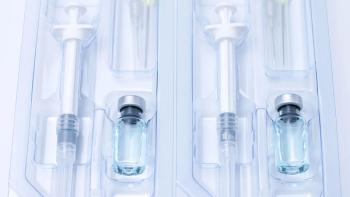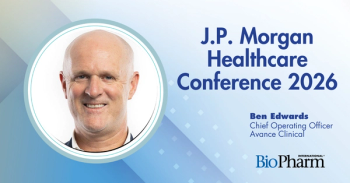
- BioPharm International-02-01-2010
- Volume 23
- Issue 2
Cautious Hopefullness: Contract Services Industry's Fortunes Unclear for 2010
As facility closures and layoffs continue, CRO and CMO executives are hoping for a better year, despite few positive signs.
I wrote this month's column while on my way back from this year's JPMorgan Health Care Conference, the premiere industry showcase for healthcare companies—especially bio/pharmaceutical companies—seeking to pitch their stories to investors. Held annually during the second week of January, the conference is a great place to gauge the mood and prospects of the industry for the coming year.
Jim Miller
A significant number of public contract research and manufacturing companies (CROs and CMOs) told their stories, including Covance, Charles River Laboratories, Icon, Cambrex, Patheon, and Wuxi Pharmatech. As might be expected by anyone who followed the pharmaceutical services business in the past year, the CROs and CMOs told two widely-divergent stories. The companies focused on early development (preclinical through Phase 1) and manufacturing talked mostly about how they cut costs to preserve profitability in the face of the precipitous fall in development spending while assuring everyone that they are still poised to take advantage of the resurgence that has to come. On the other hand, the CROs offering Phase 2–4 clinical research services were able to talk about the remarkably good year they had despite the general industry downturn.
A DIFFICULT OUTLOOK
What conference attendees really wanted to know from the CRO and CMO executives was when they expect the industry's fortunes to improve. All the executives could really deliver was a sense of cautious hopefulness based on positive conversations with customers, a slight uptick in requests for proposals, and a sense that things couldn't get much worse. The past year really shook the confidence of many CEOs, who had gotten used to annual double-digit increases in sales and profits.
That was really exemplified by Covance Chairman and CEO Joe Herring, who said the company had experienced too many "false positives"—contract wins for projects that were subsequently delayed or cancelled—in its preclinical business during 2009, to allow him to feel overly optimistic about 2010. Herring was still able to project overall growth for Covance, thanks to the spectacular performance of its central laboratory business.
The difficult outlook was further underscored by the announcement from Charles River Laboratories that it would close its Shrewsbury, MA, preclinical toxicology laboratory facility in 2010, as a cost saving measure. Charles River expects to improve profitability by $20 million annually by closing the 400,000 sq. ft. Shrewsbury operation and consolidating work at its other facilities. Preclinical toxicology facilities are high fixed-cost operations, much like manufacturing, and are unprofitable without high utilization.
The closure reflects both the general downturn in early development activity and the serious overcapacity problem in the preclinical toxicology sector, following an explosion of facility building and expansion in recent years. Shutting down the facility suggests that Charles River executives don't expect a rebound in the business sufficient to absorb all of the available capacity for at least several more years. That's not good news for any company supporting clinical development, including manufacturers of clinical trial materials.
MAJOR EVENTS OF 2009
The CEOs' perspectives at the JPMorgan Conference were offered against a backdrop of a series of major and minor industry developments at the end of 2009 and the beginning of 2010.
In addition to the Charles River Laboratories' facility closure, there was the announcement by Lonza in early January that it would close three of its manufacturing and distribution sites in the US and Europe, including its pharmaceutical chemical manufacturing site in Conshohocken, PA. The closures are actually part of the restructuring plan Lonza executives announced in October 2009, following a rash of manufacturing cancellations and delays. That announcement highlighted the changing inventory management practices at the major bio/pharmaceutical companies.
December 2009 saw the sale of two well-known biomanufacturing companies, as Merck announced its plan to buy Avecia, and Cobra Biologics was acquired by Recipharm. Merck's acquisition of Avecia has the most impact because Avecia was a well-established player in microbial fermentation for manufacturing of therapeutic proteins, with capacity at the 5,000-L and 1,000-L scale, and because it appears likely that under Merck, Avecia will no longer pursue new contract manufacturing business. According to financial information available on Avecia's website, the business has never really been profitable and its private equity owners were probably relieved to be rid of the negative cash flow.
Profitability also has been an issue for publicly held Cobra, which offers process development and very small-scale manufacturing services for both microbial and mammalian fermentation. Recipharm executives clearly believe they can change that situation. The company has been an aggressive buyer of manufacturing facilities in Europe in the last several years and has been aggressively building its large molecule capabilities in the last two years. In 2008, it bought a liquid injectables manufacturing facility in France from AstraZeneca, and the manufacturing assets of Switzerland-based Innotech, which offers formulation and lyophilization cycle development as well as clinical scale fill-and-finish services. In 2009, it purchased a majority interest in a biomanufacturing facility in Sweden from AstraZeneca.
IT COULD GET NASTY
The general market outlook and financial performance challenges faced by Avecia and Cobra suggest that contract service providers need to be somewhat wary of the near-term prospects for the biologics market. Yet, most contract services companies are excited about the opportunity presented by the growing number of biologics in the pipeline, especially fill-and-finish service providers. Notable announcements of new entrants into the market last year included Vetter, which is building a clinical-scale operation near Chicago.
Overall, 2009 was a rough year for clinical-scale injectables manufacturers. A number of new facilities and suites came on line during the year but they didn't get much use. Some injectables companies were forced to give away fills and at least one new entrant was reportedly on the verge of closure less than a year after it opened.
There is widespread agreement throughout the bio/pharmaceutical industry that outsourcing will continue to grow long term, especially as major bio/pharmaceutical companies adapt their business models to the more hostile market environment. The near-term prospects are not so clear, however, and industry participants are forced to walk the line between maintaining current profitability while positioning themselves for future opportunity.
Jim Miller is president of PharmSource Information Services, Inc. , Springfield, VA, 703.383.4903,
Articles in this issue
about 16 years ago
BioPharm International, February 2010 Issue (PDF)about 16 years ago
Biotech Manufacturing Under Scrutinyabout 16 years ago
QbD Gains Momentumabout 16 years ago
Statistical Equivalence Testing for Assessing Bench-Scale CleanabilityNewsletter
Stay at the forefront of biopharmaceutical innovation—subscribe to BioPharm International for expert insights on drug development, manufacturing, compliance, and more.




